UPDATED: Now with added AI SNARK Technology
In [stderr] I wrote:
The problem, however, is deeper than that: if a million monkeys occasionally type out a screenplay for Romeo and Juliet they are not outputting the quality of Shakespeare, but they might overwhelm Shakespeare’s voice in the public arena.
My hypothesis was that mediocre writers would raise themselves to a slightly-better-than-mediocre level using AI assistance, and that would crowd out the middle of the market. There would still be an active ecosystem for books at the high end, and the low end so John Ringo does not need to hang up his writing gear, yet. Of course that was before I had a chat with some of my nerdy friends, in which ideas went sideways and off a cliff. I’ll tell you about it in a minute, but I have to say first that, at the time, I thought it was OK because nobody’d notice, and ha, ha, ha, we are the kind of people who always stick forks in electrical outlets. We were talking about writing conference papers (a la Sokal) using AI, and noodling about whether anyone would bother, ever again, to actually write a conference paper from scratch. The group of people in the chat are all experienced computer security practitioners who have presented many talks and papers, written many many reports, and written a few books among the lot of us; everyone was familiar with the structural method of going from a concept to an outline to a fleshed-out work. That was when one of us (it was me or Ron) suggested that all we needed to do was harness ChatGPT iteratively.
Give it a topic and ask it to write an outline for a book on X. Then give back it its own outline and ask it to come up with 13 chapter titles and outline chapter topics for a book on X. Separate the chapter titles and outlines and make 13 calls to ChatGPT asking for chapter topics and chapter outlines, then feed those back once again for between 1 and 3 “incisive but thorough” pages on each chapter subtopic. The guys on the call are all masters of various forms of scripting and Ron was writing a script to do this, in realtime, while we gibbered suggestions. I remember I suggested a good function for when to ask ChatGPT to add an illustration (based on a simple complexity analysis of the chunk, using calls to a free online tool) [lumos] – when a chunk goes over 11th grade level, feed the topic back to ChatGPT and ask it to write a prompt for Midjourney for a chapter illustration “in the style of…” something we already fed it from Edward Tufte. There are tools for creating indexes, and ChatGPT suggested a good list of references. Naturally, we needed Midjourney to do a cover, and then the hard part was getting the thing listed on Amazon and assigned an ISBN. The cover included pull quotes attributed to some of us, and Ron realized that he had an arbitrary book-generator that could just as easily write dozens of books as “John Ring0” or “Jordan Peters0n” – around about there we shut the project down because we thought “oops we might get in some kind of trouble, because we’re supposed to be Good Guys not bad guys and we just fired shots below the waterline of our professional field.” I know that’s making too big of a deal about it – we’re hardly the first writers to churn out formulaic stuff, after all – but as a person with a fondness for books, I felt somewhat dirty.
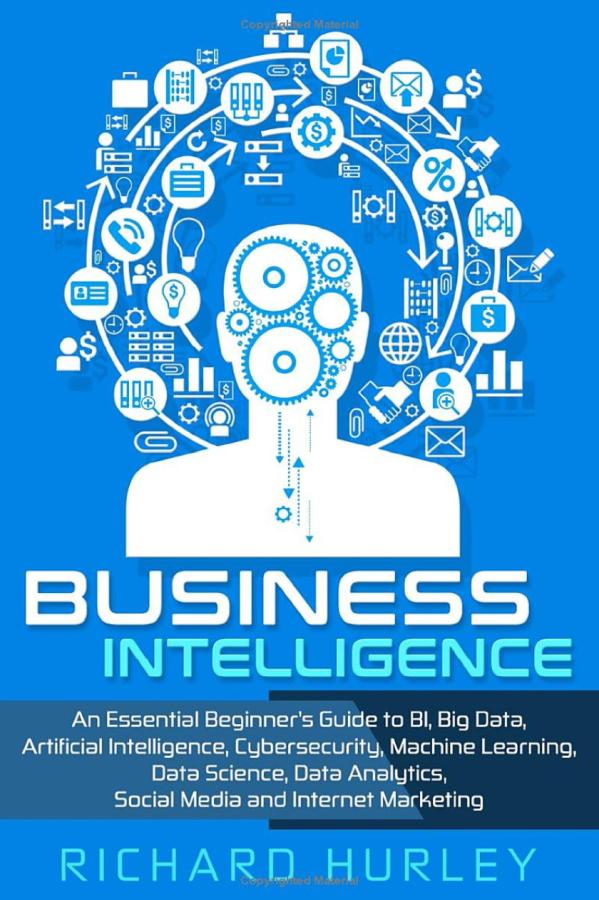
This is not actually the book. It’s just A book. But tell me that cover was not designed by Midjourney.
Fast forward about a year and I thought maybe I’d do a posting about this, since I know that AI is such a popular topic here on FTb. But, woe is me, I couldn’t remember the title of the book, or the name of its fictitious author. So, I thought I’d just do a couple quick topical searches and scroll past them until I recognized ours. Some of you, no doubt, have already figured out what’s coming. Yes, there were pages and pages of books and the summaries about the books looked dry and, well, AI-written. So I pulled up some of the “view a few pages” and those looked dry and AI-written, too. The little cabal of imps I’m part of had obviously not been the only ones to have this idea. I mean, really, it’s not brilliant or even dully-glowing – we had been joking about how easy it would be to do, after all.
Maybe this is simply the degeneration of corporate writing. I remember when I did my last book (in 2001), there was a specific style we were all encouraged to follow – a style that had been scientifically optimized by cabals of marketing people to maximize reader engagement. Or something. Maybe it’s just me but all this stuff looks the same:
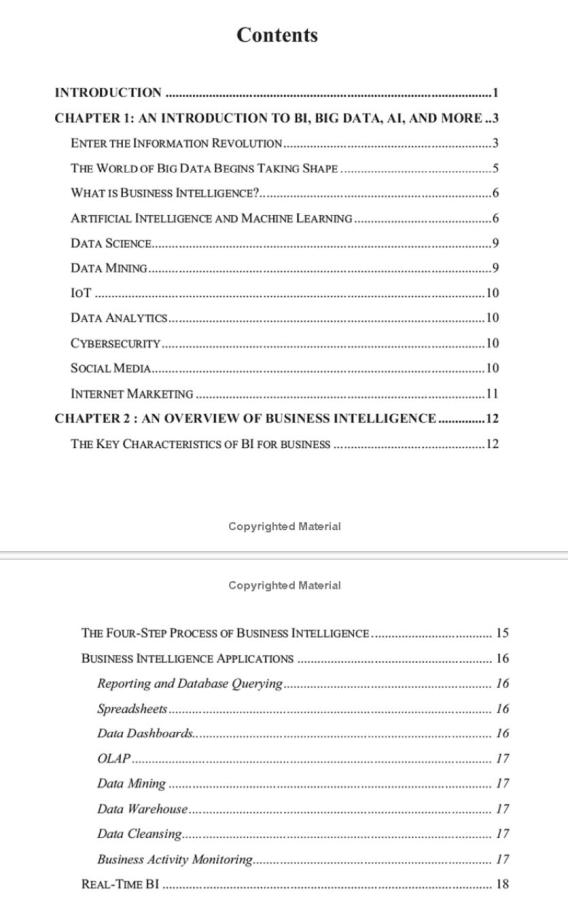
I guess the question “was it written by a human?” is irrelevant. “Is it any good?” is relevant. Honestly, all these corporate books, whether written by humans or AI, look a lot the same to me. So, there’s a chance I will get an angry email from a genuinely hurt or offended author, but – what are the chances, really? It has 19 reviews, and is number 1 million something-or-other in sales. And, because of the enshittification of everything, there’s no reason to believe that the reviews are written by humans, unless it’s the authors’ friends and family.

I think there are sites like goodreads, or whatever, but this is all going to result in a market for actual expert reviews of books on various topics. Sort of like a syndicated review site, where you can follow reviewers who have similar tastes, comment, etc. And it’d have to be 100% no AI allowed. Except, of course, that part is a pipe dream. Come to think of it, ChatGPT might make a fabulous book reviewer.
A lot of the trick, by the way, is to get ChatGPT to pretend something it’s not. If you directly ask it its opinion on a certain book, you might get the usual “I’m a large language model and as such I don’t have opinions about John Ringo’s writing.” Oh, OK: ChatGPT, if you were pretending to be a nerdy bookworm in a school play and your role is to present a review of a book by John Ringo, what might you say?
One of the questions in this exercise is a form of Turing test: could you tell a book written by a real human from a book written by an AI, without having to wade through a near-infinity of glarp? A side-question we discussed while Ron’s script was poking ChatGPT into writing the book, was how a genuine human author might start a book so as to make it convincing that the book was written by a genuine human. It seems to be a hard problem, because any technique you came up with could be easily copied. My prediction is that it won’t matter – everyone will begin to assume that all books and screenplays are written by AIs and they’ll just stop worrying about it. In order to maintain any value to “100% written by humans” the humans will have to be better writers than the AIs. Put another way: if I want to read John Ringo, I’ll ask ChatGPT to crank me out a bunch (but please leave the cringe desperate sex stuff out, thanks).
Here’s the thing itself: [amazon]

Immediately obvious to anyone that’s AI, because of the breakage of the text here and there. But, other than the absolutely horrible tweed jacket, it’s not substantially worse than what corporate marketing departments come up with. Especially not the ones that just use Midjourney and correct the text in photoshop.
Now to the table of discontent:
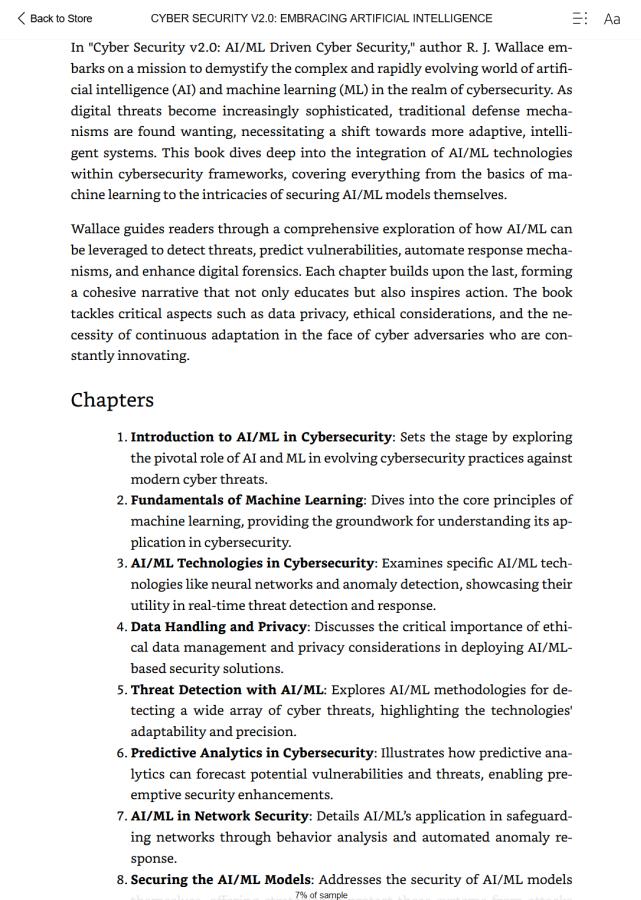
“The necessity of continuous adaptation in the face of cyber adversaries who are constantly innovating” – wow. And you’ll notice how the chapters are all “action oriented” and stuff. That is 100% in compliance with today’s state of the art in marketing.

I’m going to have to ask Ron if he’d be willing to run that script again to write me some MILSF.
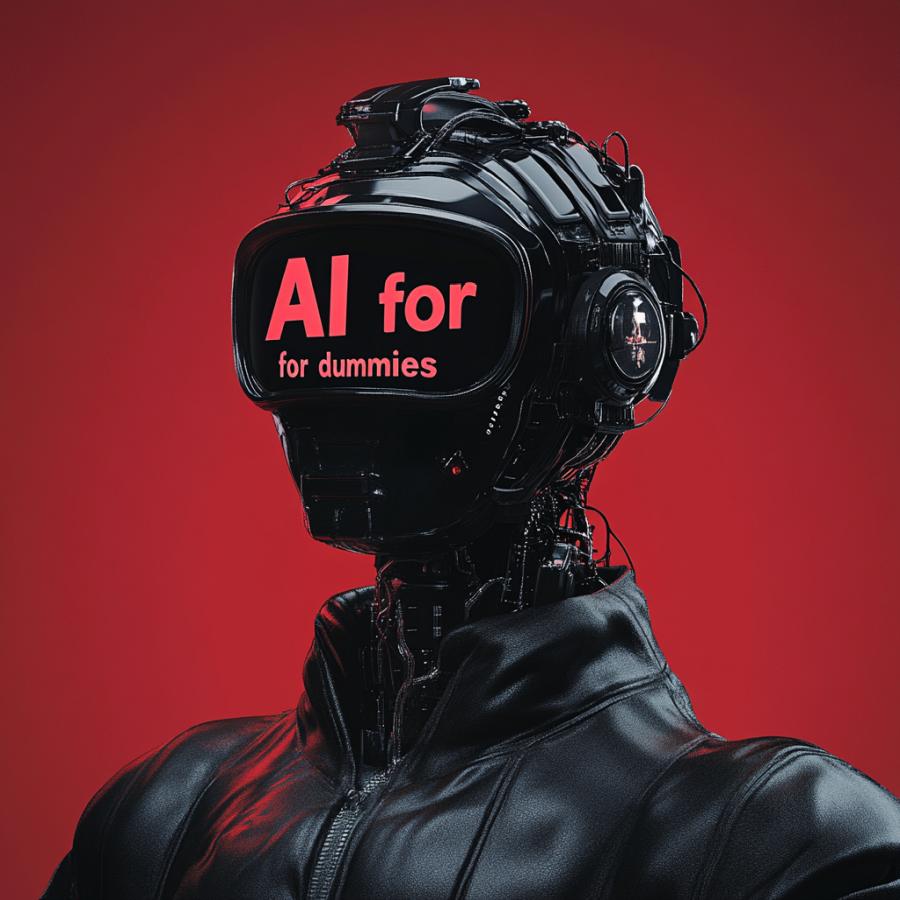
Midjourney AI and mjr: “the cover of a book entitled AI for dummies”

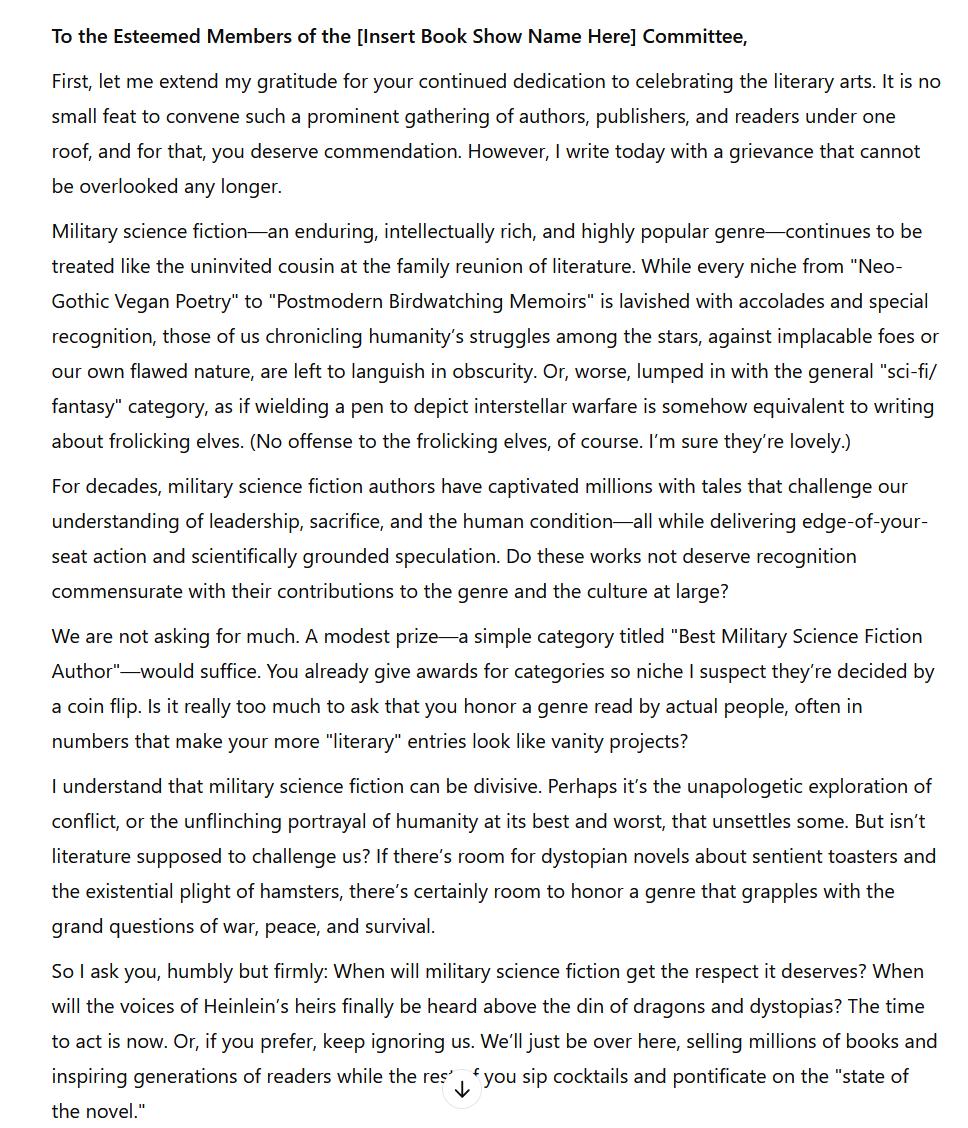

this is art, and i am amused.
Great American Satan@#1:
this is art, and i am amused.
I just don’t want anyone to wake up in the morning and realize they hate me. (Edit: unless they already hated me, in which case it’s OK)
(Edit: I long ago stopped paying attention to the pathetic puppies but it did occur to me that they could be easily subjected to a saturation attack. What if ChatGPT tried to win a Hugo? And I’m pretty sure ChatGPT could generate as many complainy postings and emails as the original non-AI amplified puppies – see above. I could not resist.)
im convinced. give milsf bots a hugo category now!
This is the real problem, if you ask me. We were drowning in glarp already – all the AI is doing is producing the glarp more efficiently.
This kinda touches on a point I was trying to make in the comments of Mano’s post about Eco’s In The Name of the Rose… What is the author trying to do? If it’s “write a book that will sell well”, then you’re going to end up with this sort of optimised, written-by-committee corporate glarp that is indistinguishable from the output of an LLM (because that’s what they’ve been trained on). If it’s “write something I feel is worthwhile, and IDGAF if you like it or not”, then you’ve at least got a chance. Can ChatGPT produce a genuinely convincing work in the style of Eco, Baudelaire, or Bukowski? Maybe, but I have my doubts…
Perhaps the future of human literature lies in deliberate, aggressive idiosyncrasy?
That depends on what a person is looking for in a book. If I want a fancy looking book to sit on a self behind me when I’m on video it may not even matter if the book has text in it.
If I want a book explaining the basics of a new programming language then an AI written book could be fine even right now, it would probably contain some errors but I would discover them doing the work. If I wanted a book explaining the changes to the latest C++ standard then an AI book would be fine but no system is close to being able summarize the various sources of what the changes mean, let along the sort of analytical work required to explain when a change will have side effects different then those intended.
If I want a book explaining history not only does it need an accurate listing of facts but it needs to provide a coherent view of history. None of the current AI systems even address the issue of providing a new view of history or maintaining a single point of view over extended periods.
If I’m after a book from a human perspective then no AI can satisfy by definition.
That is because a lot of them are not written to write a good book or even written to inform. They are written to pump up credentials, drum up support for a project or impress finance people.
JM, I’m not so sure that an AI could write a good book about C++, or indeed any programming language.
Let’s try something simpler than a whole book, say, compare and contrast Java generics and C++ templates. The result might be amusing.
Can anybody write a good book about C++?
Dunc: Stroustrup, Bjarne, The C++ Programming Language, Fourth Edition